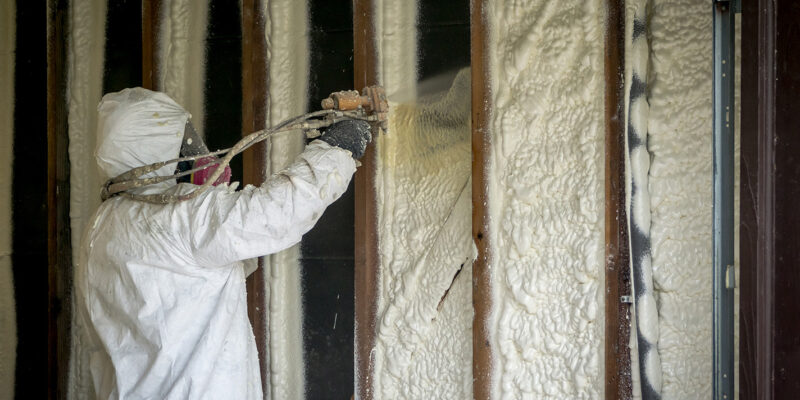As the world becomes more aware of the impact of climate change, people are increasingly looking for ways to reduce their carbon footprint. One area where individuals and businesses can make a difference is in the use of insulation. Insulation is used to keep buildings warm in the winter and cool in the summer, which can help reduce energy consumption and greenhouse gas emissions. However, not all insulation materials are created equal, and some have a much greater environmental impact than others. In this article, we will explore the environmental impact of polystyrene insulation and suggest alternatives that can help reduce your carbon footprint.
Contents
What is Polystyrene Insulation?
Polystyrene insulation is a popular choice for many builders and homeowners because it is affordable, lightweight, and easy to install. It is typically made from expanded polystyrene (EPS), which is a type of plastic that is derived from petroleum. EPS is made by heating polystyrene beads until they expand, which creates a material that is lightweight, durable, and has good insulation properties. There are two types of EPS insulation: white EPS and graphite EPS. White EPS has a lower R-value (a measure of insulation effectiveness) than graphite EPS but is typically less expensive.

The Environmental Impact of Polystyrene Insulation
Despite its popularity, polystyrene insulation has several environmental drawbacks. First, it is made from a non-renewable resource (petroleum) and requires a significant amount of energy to produce. The production process also generates greenhouse gas emissions, which contribute to climate change. In addition, polystyrene is not biodegradable and can persist in the environment for hundreds of years. When polystyrene waste ends up in landfills, it can take up valuable space and release toxic chemicals into the soil and groundwater.
Another environmental concern with polystyrene insulation is its potential for off-gassing. Off-gassing occurs when volatile organic compounds (VOCs) are released from the insulation into the indoor air. VOCs can cause a variety of health problems, including headaches, dizziness, and respiratory issues. While EPS is not known to off-gas significantly, some experts have raised concerns about the potential health effects of long-term exposure to polystyrene insulation.
Alternatives to Polystyrene Insulation
Fortunately, there are many alternatives to polystyrene insulation that are more environmentally friendly. One option is cellulose insulation, which is made from recycled paper products and has a lower environmental impact than polystyrene. Cellulose insulation is also effective at reducing heat loss and can be blown into walls or attics to improve insulation. Another option is natural fiber insulation, which is made from renewable resources like wool, hemp, or cotton. These materials are biodegradable and do not release harmful chemicals into the environment.
Another option is rigid foam insulation made from polyisocyanurate, which is derived from soybeans. This material has a lower environmental impact than polystyrene and is effective at reducing heat loss. However, it is more expensive than polystyrene insulation, which can be a barrier for some consumers.
Conclusion
While polystyrene insulation is a popular choice for many builders and homeowners, it has several environmental drawbacks. It is made from a non-renewable resource, requires a significant amount of energy to produce, and is not biodegradable. Additionally, it has the potential to off-gas harmful VOCs into the indoor air. Fortunately, there are many alternatives to polystyrene insulation that are more environmentally friendly, including cellulose insulation, natural fiber insulation, and rigid foam insulation made from polyisocyanurate.



